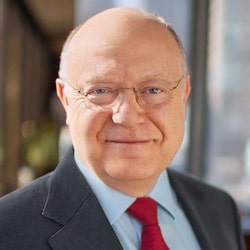
Trump arrives in London to protests
President Trump arrives in London today to meet Prime Minister Theresa May, but will largely steer clear of London, where protestors are expected to be out in force.
Trump has been using his anti-diplomacy to ruffle feathers in Europe – claiming that Germany is a ‘captive’ of Russia because of dependence on its gas pipeline (even though this is wildly inaccurate), and demanding European nations increase their spending commitment to NATO.
He has also embarrassed Theresa May before his arrival in the UK, pointing out that the country (more accurately the government) is in turmoil because of deep divisions over Brexit.
However the prevailing emotions in England this morning are more likely to be disappointment and sadness – mixed with some pride – as England’s football team saw their best World Cup performance in decades come to an end last night in Moscow with defeat to Croatia in the semi-finals.
Anti-Trump protestors are set to lighten the mood with a President-baiting Trump Baby balloon (pictured) to be flown over London during his visit – depicting him as oversized baby with a mobile phone in his hand, ready to tweet.
The president is also set to meet business leaders this evening outside the capital, and included on the guest list are pharma leaders, J&J’s Alex Gorsky and GSK’s Emma Walmsley.
Image credit: Trump Baby UK
NICE says no to myeloma ‘game changer’ Darzalex
England’s cost effectiveness watchdog NICE has issued draft guidance not recommending Janssen’s Darzalex (daratumumab) for second line use in multiple myeloma in combination with existing treatments.
Among a wave of new myeloma treatments, Darzalex is seen as one of the most promising, with clinicians describing it as a ‘game changer’ in terms of prolonging lives of patients.
NICE recommended Darzalex in March this year via the Cancer Drugs Fund (CDF) for use as a monotherapy in relapsed and refractory myeloma in patients who have had three previous treatments. However the cost-effectiveness body has today rejected the drug’s use in combination with bortezomib and dexamethasone (DBd) in patients who have progressed after initial therapy.
NICE’s appraisal consultation document (ACD) praises the DBd combination as innovative, and acknowledged the improved overall survival and reduced the risk of death by 50%. The combination has also been shown to improve progression-free survival (PFS) by a median of 18 months – however NICE says the data is not yet mature enough to be sure about its overall cost-effectiveness.

Jennifer Lee, Director of Health Economics, Market Access and Reimbursement (HEMAR) and Advocacy at Janssen UK, said: “While we are pleased that NICE has recognised DBd as an innovative step-change in the treatment of people with RRMM, today’s decision will come as disappointing news for patients. For many patients, the first relapse can have a devastating physical and psychological impact. It is therefore important that the most effective treatments are used as early as possible to help patients live longer. Despite being recommended by clinical guidelines, there are currently no triple therapies recommended by NICE at second-line, yet there is a clear unmet need for efficacious products in this setting.”
Janssen says it will continue to seek a solution with NICE and NHS England, while NICE’s appraisal consultation document is open to comments until 2 August.
Opdivo combo to challenge Keytruda in new cancer biomarker patients
The FDA has approved Opdivo plus Yervoy for the treatment of adult and paediatric patients with microsatellite instability high (MSI-H) or mismatch repair deficient (dMMR) metastatic colorectal cancer.
About 4% to 5% of metastatic colorectal cancer patients have those mutations, and make them less likely to benefit from conventional chemotherapy.
Opdivo gained approval in these patients a year ago as a monotherapy, but the combination with Yervoy produced a response in 55%, higher than the 31% seen in Opdivo alone.
This should help BMS challenge Keytruda in this cutting-edge setting, where Merck’s drug has a broader approval covering solid tumours originating anywhere in the body, as long as they carry MSI-H genetic biomarkers.
Pfizer backs down on prices increases
Pfizer backed down yesterday on the US price rises it recently announced after President Trump had an ‘extensive discussion’ with its CEO Ian Read.

The company raised prices on a number of its drugs on 1 July, with Trump responding to this on Monday via social media, tweeting that “Pfizer and other drugmakers” “should be ashamed” about their increased prices.
Pfizer raised the price of 41 drugs by as much as 9%, although it also lowered prices on five drugs by up to 44%.
The increases come in defiance of the president’s pledge in May that companies would announce “massive, voluntary price cuts”.
Pfizer responded by saying that the list prices of just 10% of its drugs were rising. It also reiterated that this list price didn’t reflect prices most patients on insurance companies paid – and once again pointed the finger at the rebate system as a source of problems in US healthcare.
Nevertheless, Pfizer says that it will now ‘defer’ its price rises announced on 1 July in order “to give the president an opportunity to work on his blueprint to strengthen the healthcare system and provide more access for patients.”
The change of heart was announced yesterday after the two leaders had a long conversation about prices and healthcare reform.
The company has pledged to reverse the price increases as soon as possible, and to keep them in place until the end of the year, or when the president’s blueprint comes into effect, whichever is sooner.




